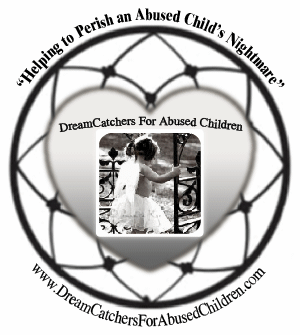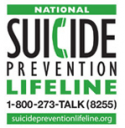Helping Your Child Deal With ADULT Bullies
 It’s bad enough when a child is bullied by another child, but when they’re dealing with adult bullies it’s an even bigger blow to their self-esteem and well-being. After all, adults are supposed to be the trustworthy ones, the people you go to when you need help, the responsible ones who tell you everything is going to be okay. Imagine being a child and hearing horrible taunts coming out of the mouth of a trusted teacher, or worse, an adult family member or parent. Teaching your child to deal with adult bullies is a little different than teaching them to deal with bullying from their peers. READ MORE HERE
It’s bad enough when a child is bullied by another child, but when they’re dealing with adult bullies it’s an even bigger blow to their self-esteem and well-being. After all, adults are supposed to be the trustworthy ones, the people you go to when you need help, the responsible ones who tell you everything is going to be okay. Imagine being a child and hearing horrible taunts coming out of the mouth of a trusted teacher, or worse, an adult family member or parent. Teaching your child to deal with adult bullies is a little different than teaching them to deal with bullying from their peers. READ MORE HERE
MORE INFO:
There are several different types of adult bullies, and it helps to know how they operate:
- Narcissistic Adult Bully: This type of adult bully is self-centered and does not share empathy with others. Additionally, there is little anxiety about consequences. He or she seems to feel good about him or herself, but in reality has a brittle narcissism that requires putting others down.
- Impulsive Adult Bully: Adult bullies in this category are more spontaneous and plan their bullying out less. Even if consequences are likely, this adult bully has a hard time restraining his or her behavior. In some cases, this type of bullying may be unintentional, resulting in periods of stress, or when the bully is actually upset or concerned about something unconnected with the victim.
- Physical Bully: While adult bullying rarely turns to physical confrontation, there are, nonetheless, bullies that use physicality. In some cases, the adult bully may not actually physically harm the victim, but may use the threat of harm, or physical domination through looming. Additionally, a physical bully may damage or steal a victim’s property, rather than physically confronting the victim.
- Verbal Adult Bully: Words can be quite damaging. Adult bullies who use this type of tactic may start rumors about the victim, or use sarcastic or demeaning language to dominate or humiliate another person. This subtle type of bullying also has the advantage – to the bully – of being difficult to document. However, the emotional and psychological impacts of verbal bullying can be felt quite keenly and can result in reduced job performance and even depression.
- Secondary Adult Bully: This is someone who does not initiate the bullying, but joins in so that he or she does not actually become a victim down the road. Secondary bullies may feel bad about what they are doing, but are more concerned about protecting themselves.
—————————————————————————————————–
When you think of bullies, you often think of children terrorizing other children. However, it is important to note that even parents can be bullies. Bullying parents exist, and they can cause real problems in children’s lives. Recently, there have been cases of adults bullying teenagers online. Additionally, some parenting styles can lend themselves to bullying. It is important to carefully consider your behavior with children, since it is possible that you are or could become a bullying parent.
What is a bully?
A bully is someone who is regularly overbearing. He or she looks to cause humiliation or discomfort to another, particularly if that other is weaker or smaller. This can be physical bullying, emotional bullying or mental discomfort and humiliation. It is important to understand that bullying goes beyond physical intimidation. Many people don’t realize that emotional and mental bullying can have just as many long lasting effects as physical bullying – even though the effects are of different kinds. The effects from bullying parents are no less severe.
It may seem strange to think that parents can be bullies, but they can be. Parents who are overbearing, constantly belittling their children or seeking to be controlling, and enforcing rules with a heavy hand, may actually be crossing the line into bullying parent behavior. Indeed, there is a difference between correcting a child’s inappropriate behavior and constantly trying to control every aspect of that child’s life.
Emotional and mental bullying parents
Many bullying parents understand that there is a line when it comes to physicality. Discipline can be a tough subject to tackle, but in general it is much easier to identify bullying behaviors that are physical as opposed to those that are emotional or mental. Emotional and mental bullying works by using methods of demeaning speech and other techniques that are meant to help the bully feel superior.
When bullying parents use this style of parenting, they try and motivate their children by being derisive. This can be especially damaging, since it can encourage a child to think ill of him/herself. This can leave mental scars that can result in depression, as well as set the child up to have difficulty sustaining good relationships. Indeed, if a child learns how to treat people form the example of a bullying parent, he or she is likely to grow to be a bully as well, and may have a hard time developing healthy relationships.
Cyberbullying by Bullying Parents
Another form of bullying is cyberbullying. Some parent bullying is developing along these lines as they try and dominate others in an online social circle. Cyberbullying is becoming a real problem. It involves saying mean things online, putting unflattering graffiti on someone’s social wall, or sharing pictures with others of a person in compromising situations. Indeed, cyberbullying is such a problem that there was a case in which an adult woman harassed a teenager so much online that the teen went into depression and committed suicide.
Some bullying parents use such tactics to control their children’s lives online. Other parents think they are protecting their own children when they bully other kids. Indeed, in an effort to try and protect their kids, some parents go too far in trying to teach other kids a lesson and become bullies themselves.
Dealing with parent bullying
Dealing with a parent bully can be difficult. The first thing you should try is to talk to the parent. Try and work out differences. If that doesn’t work, it is a good idea to talk to some sort of authority at the school, or even with law enforcement. It is important that parent bullying be stopped, especially since it can be damaging to the long term psyche of the child.
———————————————————————————————–
Parents’ physical bullying
Physical bullying is an act of physical aggression that causes injury.
- Shaking a baby or a toddler (can lead to brain injury)
- Drug or alcohol use in pregnancy (can seriously damage the baby)
- Physical punishment – linking the child’s actions with physical consequences
- Beating
- Slapping
- Hitting
- Kicking
- Pinching
- Pushing
- Hair pulling
- Throwing the child
- Denial of food
- Preventing the child from going to the toilet or washing
- Making the child to do what the parent wants by physical force
- Use of objects to cause pain, like belting or burning the skin with cigarettes or a hot iron
- Sexual abuse – any kind of sexual act between an adult and child, including revealing genitals, exhibiting pornography, telling sexual stories, forcing a child to touch adult genitals, sexual intercourse, penetration, rape and child prostitution
Kids are at a higher risk in families living in isolation, orphanages and families in financial crisis. Again, some parents do not even recognize that this behavior is bullying, because they grew up with such parents (or carers) themselves.
Parents’ emotional bullying
Emotional bullying is harder to detect, but its impact is huge and last for a long time. Parents sometimes behave in such a way thinking they are doing what is normal or even doing their kids a favor. Parents’ emotional bullying can be done by aggressive or passive-aggressive behavior that creates humiliation and/or fear.
- Threatening
- Name calling
- Using foul language
- Insulting, especially in public
- Creating competitions between siblings
- Negative gender-related comments (you play like a girl!)
- Negative remarks about preferences
- Negative comments about skills
- Favoritism towards one child
- Causing fear of physical bullying
- Sarcasm
- Shouting
- Unreasonably strict rules
- Telling the child it would be better if they were not born
- Telling the child the parent does not want him or her
- Controlling the child’s every movement
- Continuous criticism
- Competing with the child
- Unfair punishment
- Violation of the child’s privacy
- Ignoring and neglect
- Uncompromising perfectionism
- Exposing the child to violence, drugs, extensive alcohol use or crime
- Prevention of social interaction (with friends, other partner, grandparents)
- Slavery – helping at home is reasonable, but having to earn enough money to pay for school or for your own food as a child is illegal
In every family, there is some kind of emotional bullying, mainly because there is a fine line between what is considered abuse and what is part of our role as parents. While some call forcing kids to eat what is on the table bullying, others may call it educating them to appreciate money and health. Unfortunately, because the line between them is so fine, parents can, with no bad intention, justify themselves by thinking this is the way they have been brought up or that without it, they will lose control.
Each form of bullying of parents towards their kids causes a problem in their physical and emotional development. Sometimes, it can even affect their cognitive development. The earlier the abuse is and the longer it continues, the more severe the damage will be and the longer it will impact the child’s life. In most cases, the effects of a serious act of bullying will be there forever and there is a high probability the abused child will grow up to be a bully too.
Parental bullying information
Here are some findings about the impact of parents’ bullying on their kids:
 Most of the kids who suffer bullying from their parents bully their own kids
Most of the kids who suffer bullying from their parents bully their own kids- Kids who suffer from parental bullying become suspicious of other people
- Kids who suffer bullying by their parents have difficulties maintaining relationships as adults
- Kids who suffer bullying by their parents have lower self-esteem, problems with concentration, more learning difficulties and lower academic achievements
- Kids who suffer bullying by their parents are less likely to take on challenges because of fear of failure. They expect less of themselves and achieve less
- About 80% of kids subjected to long periods of physical abuse develop a mental disorder: depression, panic attacks, paranoia or social isolation
- Kids who suffer bullying by their parents tend to show aggressive behavior. They sometimes even become extremely violent
- Some kids who suffer bullying by their parents become self-destructive (self-harm, suicide)
- Kids who suffer bullying by their parents are more likely to have sleeping problems and eating disorders
- Kids who suffer bullying by their parents are more likely use alcohol and drugs to ease their emotional pain
The impact on kids’ health and wellbeing and their ability to function as independent adults is reduced significantly when growing up with bullying parent.
—————————————————————————–
Helping children confront adult bullies
How To Stand Up To Adult Bullies
Take action when adults bully young people
Tips For Handling A Real Life “Sue Sylvester From Glee”
---------------------------------------------By the time you finish reading this, 15 children will have been abused; In the next five minutes, 30 more; Within the next hour, 360 more; And by tonight, close to 8,000+ children will have suffered from abuse, 5 of which will die. Child abuse has increased 134% since 1980 and is now considered a worldwide epidemic. The high jump in child abuse deaths and the shocking increase in statistics highlights the frightening lack of public knowledge.
Educate Yourself -- Learn the Facts
It May Just Save a Child's Life!!


















![Validate my RSS feed [Valid RSS]](http://dreamcatchersforabusedchildren.com/wp-content/uploads/2009/10/valid-rss.png)












